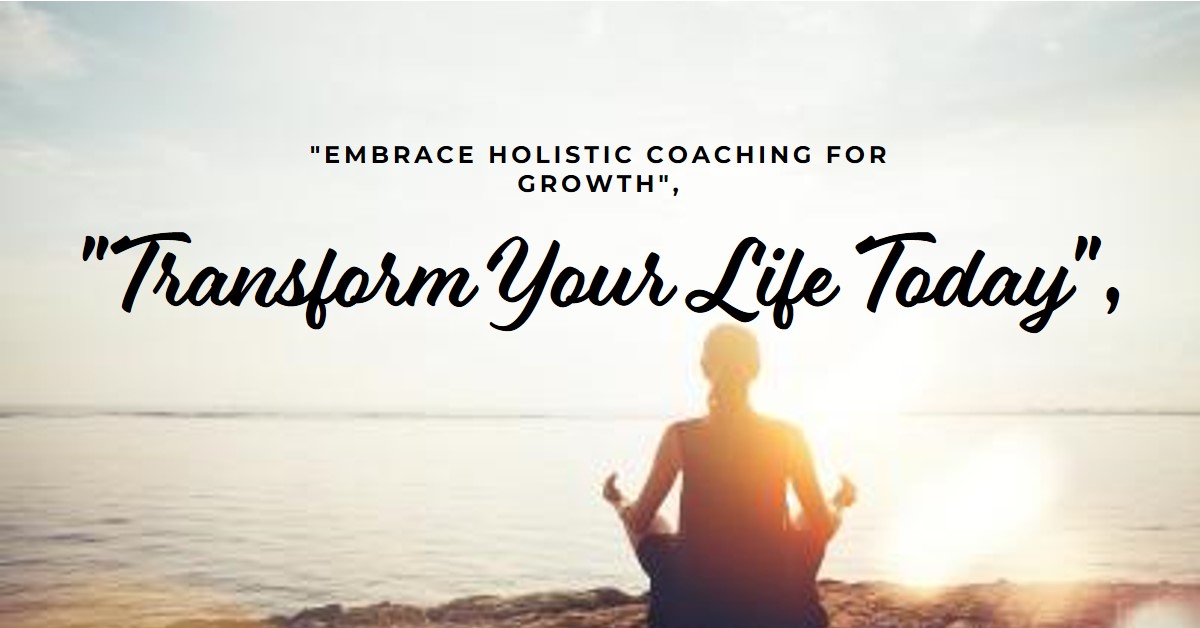
In 2025, the demand for holistic approaches to well-being is skyrocketing as individuals increasingly seek comprehensive solutions that address the mind, body, and spirit. Holistic life coaching stands at the intersection of this trend, seamlessly integrating alternative health practices like yoga, meditation, and nutrition to guide individuals toward a more balanced and fulfilling life.
This comprehensive approach empowers individuals to achieve personal and professional growth while fostering long-term wellness. Let’s explore how holistic life coaching synergizes with these alternative practices and why it remains pivotal in 2025.
The Rise of Holistic Life Coaching in 2025
As the global wellness market continues to expand, life coaching has emerged as a transformative tool. Unlike traditional coaching methods, these life coaching focuses on the interconnectedness of physical, emotional, mental, and spiritual well-being.
In 2025, technological advancements have also played a role in making coaching more accessible through virtual sessions and AI-driven wellness apps. However, the human touch remains irreplaceable, making the guidance of certified holistic coaches essential for meaningful life changes.
Integrating Yoga with Holistic Life Coaching
Benefits of Yoga in Coaching Programs
Yoga, an ancient practice known for its physical and mental health benefits, is a powerful tool within life coaching. Incorporating yoga into coaching programs offers several benefits:
- Stress Reduction: Yoga helps reduce cortisol levels, improving resilience to life’s challenges.
- Enhanced Mind-Body Connection: Mindful movement fosters greater self-awareness and mental clarity.
- Improved Physical Health: Flexibility, balance, and strength are vital for maintaining long-term wellness.
Popular Yoga Trends in 2025
- Virtual Yoga Classes: Holistic coaches often recommend online classes tailored to individual fitness levels.
- Trauma-Informed Yoga: Recognized as a therapeutic modality, this approach helps clients release emotional blockages.
- Yoga Nidra for Sleep: Guided meditation during Yoga Nidra sessions improves sleep quality, a key focus in many coaching plans.
The Role of Meditation
Why Meditation Matters
Meditation is a core component of these life coaching as it enhances mindfulness, reduces anxiety, and fosters emotional balance. Coaches integrate guided meditation techniques to help clients achieve a calm, focused state of mind.
Emerging Meditation Trends in 2025
- Mindfulness-Based Stress Reduction (MBSR): A structured program often incorporated into coaching.
- Wearable Meditation Devices: These gadgets track stress levels and guide users through calming breathing exercises.
- Personalized Meditation Playlists: AI-powered tools curate meditation music tailored to individual preferences.
Nutrition and Holistic Life Coaching
The Connection Between Nutrition and Mental Health
Nutrition is a critical element of these life coaching. Coaches emphasize the role of diet in influencing mood, energy levels, and overall health.
Key Nutritional Practices in 2025
- Plant-Based Diets: Increased focus on whole foods rich in essential nutrients.
- Personalized Nutrition Plans: Genetic testing and AI-driven recommendations optimize dietary choices.
- Mindful Eating Practices: Encouraging clients to savor every bite and listen to their bodies’ hunger cues.
How Coaches Integrate Nutrition
Holistic coaches work closely with nutritionists or offer guidance on simple dietary changes. For instance, swapping processed snacks for whole foods or incorporating brain-boosting nutrients like omega-3s are common recommendations.
Success Stories: Real-Life Transformations
One inspiring example is Sarah, a marketing executive who struggled with chronic stress and poor eating habits. Through this life coaching, she embraced yoga for stress relief, meditation for mental clarity, and a plant-based diet to boost her energy levels.
After just three months, Sarah reported feeling more focused, balanced, and healthier than ever before. Her transformation highlights the powerful synergy between holistic coaching and alternative health practices.
Practical Steps to Integrate Holistic Practices into Daily Life
For those seeking to adopt a holistic approach in 2025, here are actionable steps:
- Morning Mindfulness: Start your day with 5 minutes of meditation.
- Weekly Yoga Practice: Dedicate at least two sessions to physical and mental wellness.
- Balanced Nutrition: Incorporate more whole foods into your diet.
- Journaling: Reflect on your progress and identify areas for growth.
- Engage a Certified Holistic Coach: Work with a professional to create a customized plan.
FAQs
1. What is holistic life coaching?
These life coaching focuses on guiding individuals toward achieving balance across physical, mental, emotional, and spiritual dimensions.
2. How does yoga complement life coaching?
Yoga enhances physical health, reduces stress, and improves self-awareness, making it a valuable component of holistic coaching.
3. Why is meditation important in coaching programs?
Meditation fosters mindfulness, reduces anxiety, and helps clients develop mental clarity and emotional resilience.
4. What role does nutrition play in these life coaching?
Nutrition influences mood, energy levels, and overall health, making it a key focus in coaching programs.
5. Can I integrate these practices without a coach?
While self-guided efforts are possible, working with a certified holistic coach ensures a structured and personalized approach.
Conclusion
In 2025, these life coaching continues to thrive by integrating alternative health practices like yoga, meditation, and nutrition. This powerful synergy empowers individuals to achieve well-rounded wellness and navigate life with clarity and purpose.
Are you ready to embark on a transformative journey toward holistic well-being?